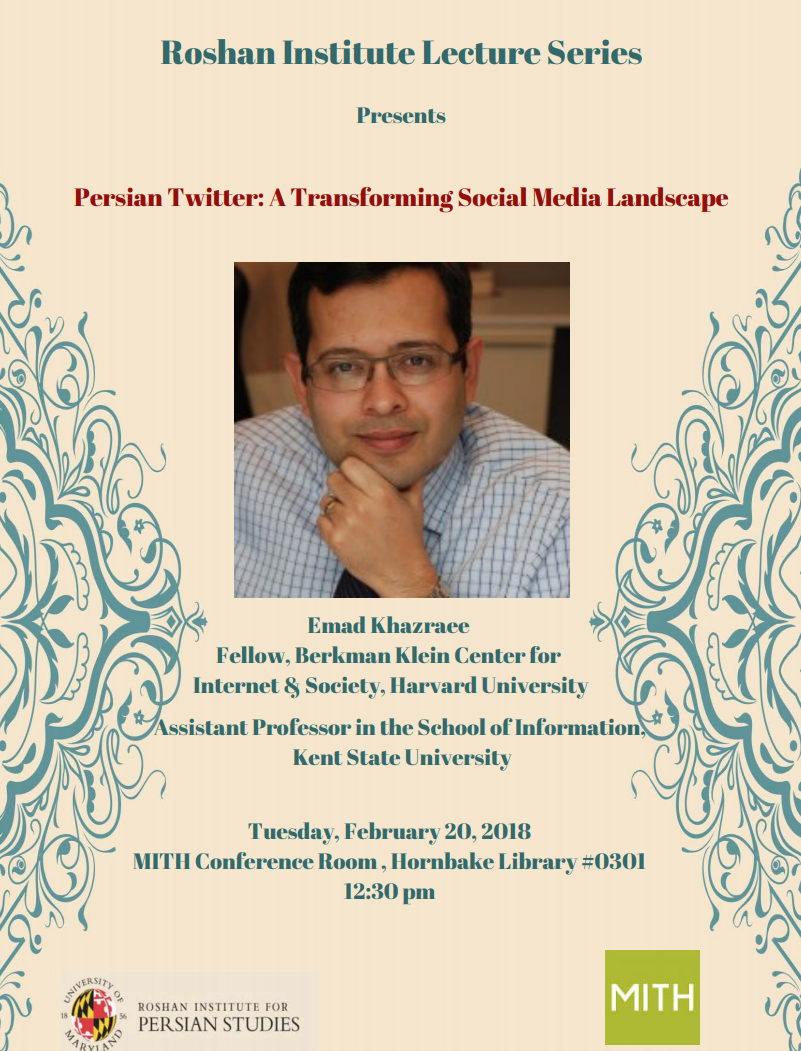Persian Twitter: A transforming Social Media Landscape

Persian Twitter: A transforming Social Media Landscape
, Social media have transformed our societies and contributed to creation of online public spaces. In the past few years, we witnessed how social media were central to any debate of socio-political movements around the world. Social media were cited as the new catalysts of social change in these contexts. However, still controversies exist about the role they played in these movements. Studying these online spaces becomes a challenge considering the pressure of repressive cultural environments. In such environments, accessing users freely is not possible in most cases. Moreover, the scale and complexity of data requires employing multiple methods to achieve a more nuanced understanding of online publics. To overcome these challenges and to gain a better understanding of the dynamics of the online public environments in Iran, Khazraee started a project for the Cartography of Iran’s online publics. The goal of the project is collecting empirical evidence that helps us to achieve a high resolution image of public online environments in Iran. As part of this project, he has conducted research on Twitter use among Iranians during two presidential elections in Iran in 2013 and 2017. This study aims to map the political landscape of Persian Twitter between these two elections and to investigate how it has been transformed during this period. The study, also, reveals the transformation of power structure in Persian Twitter between the two elections, as well as the role of various political communities and their influence on the larger communication network.,
,, ,
,, Khazraee’s doctoral research focused on knowledge production processes in data-intensive, collaborative and multidisciplinary communities of practice, specifically the knowledge production processes in archaeological communities of practice. His research also focuses on how archaeologists construct their epistemic narratives from recorded pieces of information, looking at the way they collaborate and the performativity of information technologies.,

